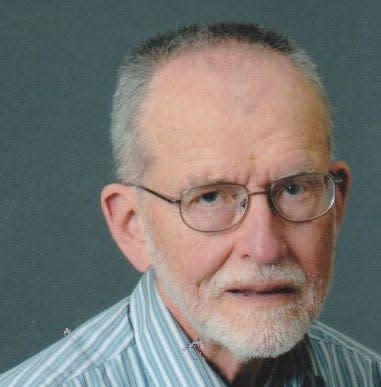Paul deLespinasse: Israelis, Palestinians need to cut each other some slack
As of today, it appears that all possible solutions to the Israeli-Palestinian conflict are impossible. The two-state solution (separate states for Israelis and Palestinians) seems impossible. A one-state solution (a single democratic state combining Israelis and Palestinians), seems equally impossible.
This situation is clearly not in the interest of average people on either side of the conflict. However, the interests of the current leaders on both sides are not necessarily the same as the interests of the people they govern.
For those inside and outside of this conflict, it might help to understand that the people and leaders of both sides are not entirely responsible for the current conditions.

Clear thinking requires us to understand where we are measuring things from. For a simple example, when someone tells us the temperature of something is 31 degrees, we have no idea what that means until we find out whether it is in Fahrenheit degrees or Centigrade. We need to know where the "zero-point" is.
This zero-point principle applies when we evaluate the actions of governments and leaders. We need to understand that governments and leaders are limited by their circumstances, and that they cannot be held responsible for the circumstances they started in. These circumstances were not their creation, but due to the earlier actions of other people.
In other words, it is only reasonable to judge leaders or nations on the basis of how they have played the cards that history dealt them.
Take, for example, North Korea's leader, Kim Jong Un. He is obviously not responsible for creating the North Korean government, which was a going concern when he took it over. Rather than blaming him personally for the nature of that regime, which is subject to a lot of reasonable criticism, it is only fair to judge him by the extent to which he has changed it — for better or for worse.
Like all human institutions, the North Korean regime has tons of institutional inertia — a strong tendency to remain the same — so that even if Kim Jong Un were a Korean Gorbachev, a sincere reformer, it would have been hard for him to improve it much.
(Even successful reforms don't always pan out. Poor Gorbachev!)
Let us now apply this analysis to Israel and Palestine. There can be no doubt that both populations and all of their leaders were dealt a terrible hand by decisions made by other people in the past. Shaped in part by Hitler's Holocaust, British government policies, American resistance to acceptance of Jewish refugees, the United Nations, and many other factors, decisions — many of which were actually well-meant — were made that produced today's tragic situation.
That is why everyone involved in or concerned about the Israeli-Palestinian conflict needs to cut all of the parties directly involved a great deal of slack.
It also means that there will be no solution to the problem unless those on all sides can understand that there is no use blaming all their problems on evil past decisions. The decisions were there, all right, but there is no use in harping on them. Looking backward is a poor posture from which to move forward, which is what the parties to this conflict need to do.
The parties need to focus on what can be done now to produce the best possible results for all of these people nowand in the future.
It is all very well to remember historical atrocities, but not if that remembrance blinds us to opportunities to negotiate better future lives for everyone. Sometimes bygones must be considered bygones and we must rise above history.
The difficulties facing Israeli and Palestinian reformers are compounded by the fact that both populations are probably suffering from a collective form of Post Traumatic Stress Disorder (PTSD).
But as Nelson Mandela and P.W. deClerk proved in South Africa, the impossible isn't always impossible, given the right leadership.
— Paul F. deLespinasse is professor emeritus of political science and computer science at Adrian College. He can be reached at pdeles@proaxis.com.
This article originally appeared on The Holland Sentinel: Paul deLespinasse: Israelis, Palestinians need to cut each other some slack
